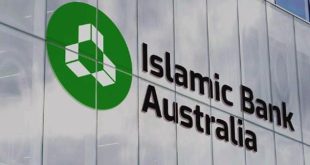It is a common practice to equate the English word ‘Interest’ with the ancient Arabic word ‘Riba’. However, this simple correlation disregards the subtle nature of Riba…
THE TERMS ‘INTEREST’ AND ‘RIBA’ ARE NOT ENTIRELY SYNONYMOUS
The meaning & definition of Interest appropriate for our purposes is the one in common use, which happens to be a “surcharge on the repayment of debt (borrowed money)”, “rent paid for the use of money”, “The fee charged by a lender to a borrower for the use of borrowed money”, etc.
That is: a monetary charge applied for the use of money (the surcharge, rent or fee is money exchanged for more money in lieu of foregoing the use of the money by the lender and is stipulated in the lending agreement/contract either before or after the commencement of the loan).
The meaning & definition of Riba shows that a monetary charge applied for the use of money (i.e. Interest) falls within the sphere of Riba and therefore, the payment and receipt of Interest is forbidden.
However, although ‘Interest’ is Riba, Riba is not restricted to just ‘Interest’ and has a much wider sphere. Therefore, the terms Riba and Interest are not entirely synonymous, and although they are both forbidden, we should cease confusing one for the other as they both have other disparate meanings.
What is required here and in general is for us to understand the proper definitions of both Arabic and English words and make clear the differentiations between the words and not confuse them. This will greatly help in understanding the subject of Riba and many other topics related to Islamic law.
RIBA IS NOT JUST USURY
Usury is simply the rate of Interest which the law of the land has deemed to be excessive (and thus in some countries, illegal) – therefore it is Riba.
However, some people believe that because extremely low rates of Interest are not usurious, therefore this ‘low-rate’ Interest is not Riba. This is a fallacious argument because even a minute rate of interest is still a monetary charge for the use of money and is an ‘excess’ on top of the loan principal/debt obligation. This clearly makes it Ribawi.
IS COMPENSATION FOR INFLATION RIBA?
Inflation, in this context, is the depreciation of the purchasing power of a specific amount of money: measured at two (start & end) points of time (in the same currency and economic/regulatory zone) by purchasing the SAME products of the same quality and inherent (non-monetary) value at both time points.
Some amongst the Fuqa’ha argue that a lender lends money knowing that there could be an inflationary loss, so why should they be compensated for Inflation? A few maintain the view that any payments to compensate for inflation is Riba.
Inflationary loss: the argument that lenders know that they could suffer inflationary loss and thus should not be compensated is negated if the lender agrees to lend on the basis that the full return of his principal must include compensation for any inflationary loss. This leads to our second point.
The view that compensation for inflation is Riba: a very simple definition of Riba is that it is an excess over (on top of) the loan principal. Compensation for inflation is merely ‘making up’ the loan principal to its original value (when it was lent) and is not an excess over it. Thus, compensation for inflation is not Riba.
The contention here is that by ascertaining the true economic value of a specific amount of money at the start and end time points, we can be fair and just when returning any money borrowed at the start point. If at the end point (when repaying the loan principal), there is a reduction of the purchasing power of the amount of money borrowed at the start point, then the true economic value of the amount borrowed at the start point is also reduced at the end point.
Thus, we should make-up this deficit of both purchasing power and economic value when returning the amount borrowed/owed to the lender/creditor so that they receive EXACTLY (and not anything more or less than) what they lent – otherwise the lender/creditor will suffer an unjust loss.
Consider the following: what if the loan payback time is not adhered to by the borrower and becomes an extraordinarily long period or if the economic situation of the country is such that it results in rapid increases in prices of goods and/or a forced devaluation of the national currency – what then?
For instance (an extreme example): a person lends £10 to another person for 1 month, 100 years ago – but the borrower did not repay that money. Now, 100 years later, one of the lenders descendents finds proof of the loan and asks one of the borrower’s descendents to pay back the loan (who agrees to do so).
Is it fair and justified for the borrowers descendent to repay just £10 or should he consider the fact that the value of £10, 100 years ago is actually the same as, say £1,000 at present time?
In that case, should he repay £10 or £1,000? Should the lenders descendent accept a potential (real) loss of £900? Remember, he is not asking for any profits (an increase on the loan principal), just that the lost value over time of the loan principal is made up. To reiterate: a monetary charge for the use of money (i.e. Interest) is not being asked for – simply that the full value of the original money is returned.
Now, if the value of the loan principal itself depreciates over time, then asking the borrower to make-up for this depreciation ONLY (i.e. as long as the lender does not profit from this compensation) is fair and justified, but anything over and above the depreciatory compensation amount is Riba and thus forbidden.
In the above example, as this was not a trade transaction (therefore taking a risk in losing his [the lenders] money was not part of the transaction), but a short-term loan transaction (which became severely delinquent), the lender is entitled to get his full principal back (in terms of the purchasing power and economic value). The contention here is that refusing to make-up the lenders loss is actually a form of Zulm in itself as it denies the lender the return of his full principal.
Some people accept the above argument but insist on calling this compensation for the reduction of purchasing power ‘Nominal Interest’. This is incorrect and we should cease calling it by this name.
‘Nominal Interest’ does not take into account the effects of inflation, but it is still an additional charge on a loan principal/debt obligation (i.e. direct Interest) and thus it is forbidden. Whereas ‘Real Interest’ does take into account the effects of inflation [Real Interest = Nominal Interest – Inflation], and it is also an additional charge on a loan principal/debt obligation but with inflation taken into account (i.e. it is inflation adjusted Interest) and thus it is also forbidden.
Only the ‘inflation’ component is not forbidden because it is not an additional (an ‘excess’ or an ‘increase’) over and above the loan principal or the debt obligation.
To avoid any such confusion, we should compensate for the reduction of purchasing power (of a given sum of money over a given period of time) caused by the ‘inflation’ of prices within an agreed economic & regulatory zone, on a completely independent and separate basis when writing lending/borrowing agreements – and not include it with any other agreements.
We should also give this compensation an independent name which will not give the impression that it is linked to Interest.
COMPONENTS OF INTEREST
Some people break-down Interest into various components and say that this part is Halal and that part is Halal and that only this small particular part is probably Riba. They use this complex and detailed argument to assert the view that the entire Interest charge cannot be therefore, considered Ribawi. We should accept this argument to a certain extent.
A modern day Interest charge has included within it a ‘profit margin’ for the lender and no matter how small this profit margin is – it is this that is regarded as pure Riba (see the above). However, it is true that a typical Interest charge is composed of several components and that individually and separately, almost all of them may be allowed (Halal or Mubah). However, the problem arises when all of these ‘allowed’ components are combined together as a single charge, because then, the payer does not know how much he is paying for what component (how much is legitimate administration costs? How much is compensation for inflation and on what basis is this calculated?).
As a consequence, the entire composition becomes subject to extreme Gharar and may be considered invalid. The way to avoid this Gharar is to separate out and to have individually negotiated agreements for each allowed component.
THE COMMIXTURE EFFECT
Furthermore, if these ‘allowed’ components are mixed with the disallowed ‘profit margin’ component – then the COMMIXTURE EFFECT comes into play, where:
If anything that is Haraam is mixed (even by an extremely minute quantity) with anything that is Halal (or even Mubah, neutral) – then this renders the entire thing Haraam.
This applies to the modern day Interest charge because the allowed aspects of it are mixed with the Ribawi aspects – thus making the entire Interest charge Haraam. Once this commixture effect is fully appreciated, then the argument that Interest=Riba can be seen in its proper context.
Without going too much into this argument, we can use an analogy to further illustrate this point.
Wine is forbidden in its entirety because it intoxicates. However, its constituents are Halal. Wine is made with grapes, water and sugar. Individually, none of the ingredients are specifically forbidden – but the end result (i.e. an intoxicating drink) is forbidden because it is now something that intoxicates when drunk (even if it doesn’t intoxicate, since it has the power to intoxicate then even a drop of it is just as forbidden as a whole bottle). Similarly, an Interest charge is forbidden in its entirety because some integral parts of it are equal to Riba.
However, as stated, most of the constituents of Interest (such as the creditor’s operational costs, inflation adjustments, etc) are individually and separately allowed – but the end result (i.e. a ‘higher value’ stipulated as a pre-condition to the agreement to exchange or subsequent to the conclusion of the exchange, i.e. an Interest charge) is forbidden because of the inclusion of one component – the direct ‘profit’ a creditor charges as compensation for it not having the use of the money.
If the direct ‘profit’ component was removed – the Interest charge itself would not be direct Riba. However, it still cannot be demanded by the creditor, but requested with full & proper explanation as to why the additional charge is justified (in Shari’ah). If the borrower does not accept the reasons – the creditor can opt not to lend to the borrower.
Thus, we have to look at the constituents and also the end product of any given transaction – and not take something out of its contextual environment – before making judgements on it.
Hence, breaking down Interest to Halal components and saying that as a result, Interest itself is Halal is akin to saying that since grapes, water and sugar are Halal – wine itself therefore, is also Halal (thus exposing the fallacy of such arguments).
This point nullifies most arguments against the ‘Interest=Riba’ position as the Interest that is Riba is not things such as operational costs, compensation for Inflation, etc – but simply the direct ‘profit’ a creditor charges as compensation for not having the use of the money. This compensation is usually stipulated/demanded by the creditor ‘as a pre-condition to the agreement to exchange or subsequent to the conclusion of the exchange’ – thus bringing Interest into the sphere of Riba.
RIBA IN NON-MUSLIM COUNTRIES AND BETWEEN MUSLIMS & NON-MUSLIMS
There is an argument from some people that it is permissible to engage in Ribawi activities if it is between Muslims and Non-Muslims and/or if done so in a non-Muslim country (Dar Al-Harb). However, this argument is based primarily on activities of the Prophet’s (pbuh) uncle, ‘Abbas ibn ‘Abd al-Muttalib.
The contention is that after he became a Muslim, Al-Abbas remained in Makkah (which, at that time, was still under the non-Muslims) and engaged in Ribawi transaction with some of the non-Muslims of Makkah.
Even after the prohibition against Riba became effective, Al-Abbas’ Ribawi transitions remained in force. It was only during the final sermon did the Prophet cancel these Ribawi transactions.
However, this argument is considered as factually incorrect. It has been counter-argued by some prominent scholars that Al-Abbas did not deal in Riba after he became a Muslim, but of course, dealt with it before.
Mufti Taqi Usmani stated:
“Before embracing Islam he [Al-Abbas] used to advance loans on the basis of interest and his debtors owed him huge amounts. It seems that after the conquest of Makkah he migrated to Madinah and could not settle his transactions with his debtors.
Therefore, when he travelled for Hajj along with Holy Prophet, Sall-Allahu alayhi wa sallam, it was the first occasion when he could settle his transactions, hence, the Holy Prophet, Sall-Allahu alayhi wa sallam, declared that the whole amount of riba payable to his uncle Abbas, Radi-Allahu anhu, was void and no more payable.
The words “first riba” occurring in this declaration do not mean that no riba was declared void before it. What it means is simply that this is the first amount of riba which is being declared as void at that occasion of the last sermon”
Thus, according to Mufti Usmani, the Ribawi transactions Al-Abbas entered into was before he became a Muslim. This point is also made apparent when we look at what the Prophet actually said (admittedly, the translation may be imperfect): “All of the Riba of jahiliyya is annulled. The first Riba that I annul is our Riba, that accruing to ‘Abbas ibn ‘Abd al-Muttalib [the Prophet’s uncle]; it is being cancelled completely”.
When we look at this statement closely, we see that the Prophet is cancelling all Riba transactions (starting with that of Al-Abbas) that occurred during the period of ignorance (in general and of Al-Abbas) – not after the establishment of Islam. This is a critical point.
Anyway, even if we do not agree with this argument – it must be agreed that there is serious scholarly disagreement on this matter, thus we should not use the ‘Al-Abbas’ argument to allow Ribawi transactions between Muslims and Non-Muslims and/or in a non-Muslim country (Dar Al-Harb).
The “Riba is allowed in a Dar Al-Harb” argument has two other dimensions:
[1] It is contended that since the final verses of the Qur’an relating to the prohibition of Riba were revealed after the battles of Taif and Hunayn, the final prohibition of Riba only came into force after these lands entered under the Muslim state through their allegiance and acceptance of Islam. Therefore, Riba was allowed between Dar A-Islam and Dar Al-Harb up until the Dar Al-Harb became Dar Al-Islam (at which point the Riba prohibition came into force). Hence, it is OK to engage in Ribawi transactions even now with countries that are not part of Dar Al-Islam.This argument is flawed as it is counter-argued by some prominent scholars that since Riba had become an essential constituent of the Arabian society, an immediate order of prohibition right from the start would have created immense social and economic problems – and would have impeded the growth of Islam.
God therefore, adopted a gradual way to eliminate it by starting with discouragement and condemnation of Riba (verse 39 of Surat Ar-Rum) to the final, clear & strong prohibition (verses 275 to 279 of Surat Al-Baqarah).
Mufti Usmani points out that:
“…It was a time when large number of Arab tribes were entering the fold of Islam throughout the peninsula. The practice of riba was rampant among them and it was apprehended that they would continue claiming the amounts of usury from one another [unless a strong & clear prohibition was made]…therefore, the Holy Prophet, Sall-Allahu alayhi wa sallam [during the last sermon], deemed it fit to announce not only the [complete] prohibition of riba but also that all the previous transactions of riba will no more be honored. It was in this context that he declared the amounts of riba payable to his uncle Abbas ibn Abdul Muttalib, Radi-Allahu anhu, as void”.
If we look at the verses prohibiting Al-Khamr for example, they become more forceful as Islam became more established – as newly reverted Muslims may have found it difficult to suddenly give up something they loved so much. The same principle was applied to Riba.
[2] It is also contended that some scholars of the Hanafi school stated that since a Muslim has entered or was living in a non-Muslim country with a promise of interacting safely and with civility, it is then only permissible for him to “…obtain their property by means that they deem lawful….”. Textual constraints would then only allow dealing in Riba, as opposed to selling alcohol or pork for example.There are 2 problems here. 1) although Muslims can lawfully seize the property of the vanquished, the property has to be that which in itself is allowed for Muslims. Now, if we say that Riba is allowed for Muslims under certain circumstances, then we need to provide the explicit evidence for it. Since there are no such evidence but only indirect inferences made from the primary sources, this becomes a problem 2) as given the choice between explicit evidence (Qur’an and many Sahih Hadiths) in support of the clear universal prohibition of Riba versus indirect, inferred ‘evidence’ for its permissibility in a Dar Al-Harb, the onus is on us to go with the explicit evidence.
Furthermore, there are no real textual constraints that allow dealing in Riba in the scenarios described (if there were, proponents of such arguments would have proffered them by now).
NO RIBA ON COMMERCIAL LOANS ?
There is an argument that commercial loans are not deemed to be loans from an Islamic perspective and that Riba is actually applicable to personal (consumptive) loans only. The argument continues that the definition of a loan according to the Fuqa’ha is charitable, and it is obvious that commercial banks have no charitable intent. Therefore, such loans are beyond the sphere of Riba. The counter-argument against this view is that if we take a look at verse 39 of Surah Al-Rum:
“Whatever you give of Riba bearing loans, so that your amount increases in the wealth of others, does not increase in the sight of God…”
Then, (even if the original Arabic does not have the words “Qard” or “Salaf” in it) we can see from this verse that Riba applied to personal as well as commercial loans. How? well, Makkah was a bustling trading centre and many different types of people came to trade in its markets.
Therefore, it is inconceivable that the Arabs (particularly in Makkah) engaged in only personal loans and did not have the ‘idea’ of lending each other money to enable each other to carry out business transactions.
Hence, it is most likely that the term ‘the wealth of others’ stated by God, is a direct reference to business and trading activities of others because this was how ‘wealth’ was generated in ancient Arabia (high salaried positions were virtually non-existent).
CONCLUSION
The subtle nature of Riba means that the Interest Riba equation is not a simple subject and the arguments provided above are a brief glimpse into this complex arena – and are not exhaustive (there may be many more areas of research).
However, thus far, one thing has stood the test of time and the various assaults on its foundations and that is no matter how one tries to find faults in the logic of the argument, the fact remains that after everything is said and done – it is evident that modern day Interest is akin to Riba and thus it is forbidden by God Almighty for all of mankind (and Jinns).
© Islamic Finance Today – Pioneer Publications (Pvt) Ltd
Post Disclaimer | Support Us
Support Us
The sailanmuslim.com web site entirely supported by individual donors and well wishers. If you regularly visit this site and wish to show your appreciation, or if you wish to see further development of sailanmuslim.com, please donate us
IMPORTANT : All content hosted on sailanmuslim.com is solely for non-commercial purposes and with the permission of original copyright holders. Any other use of the hosted content, such as for financial gain, requires express approval from the copyright owners.
 Sri lanka Muslims Web Portal Sri Lanka Muslims News Center
Sri lanka Muslims Web Portal Sri Lanka Muslims News Center
 Donate
Donate


